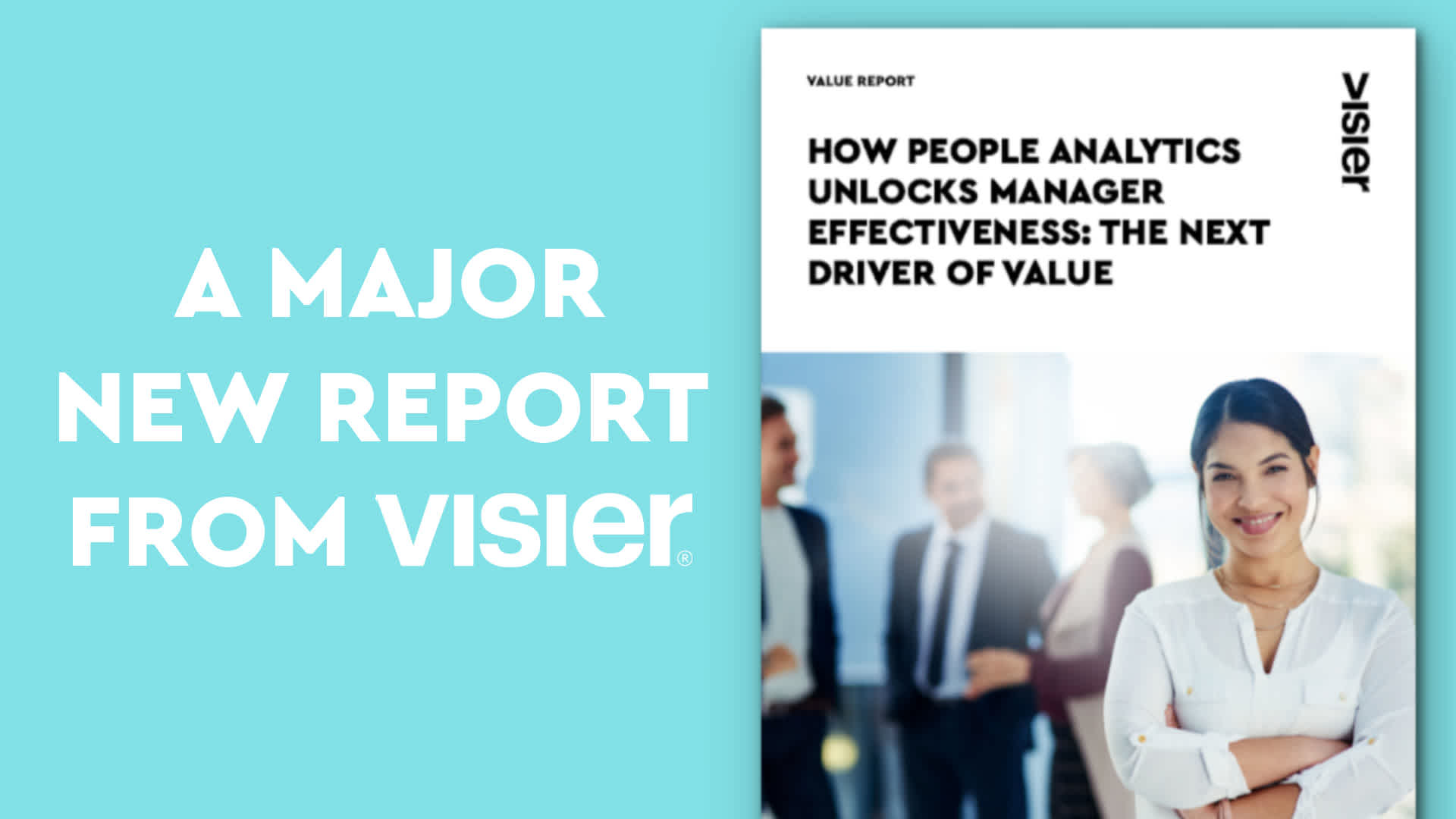People Data Makes Managers More Effective and More Human
New Visier research shows data makes people managers more effective and more human while supporting them to deliver productivity and profitability.

About 45% of all organizations have adopted some form of people analytics. The primary users are HR leaders and HR business partners. The value of adopting people analytics at an organizational level is considerable with those who adopt significantly outperforming those who don’t.
The next level of value from people analytics adoption is coming from organizations providing data and insights directly to people managers. As many as 50% of the more mature technology-adopting organizations serve finance and people managers today. Looking across the various value propositions from such adoption in our research, we found that an organization with 10,000 employees might achieve nearly $400 million in cost savings and $200 million in revenue expansion.
This significant value comes from making managers more effective using people data and insights.
According to Gartner, leader and manager effectiveness is the top priority in 2023 for organizations. When managers have access to data about their employees it enables increased productivity and profitability and also makes people managers more human by enabling them to better understand their teams’ level of engagement, their potential to burn out, their needs for more flexible work schedules, and more, all to support employees to be their best.
So, let’s look at some value propositions. If you’re a people manager, one or more of these will delight you by making you more productive or contributing to your organization’s profitability while enabling you to support your employees and teams to thrive. If you are an HR executive, you must move to democratize people data insights to realize this next wave of value.

3 ways democratizing data to people managers results in big value
In recent research we conducted to determine the financial and strategic value of providing data and insights to people managers, also known as “democratization” we found the following:
1. Democratization saves manager time in meetings
By providing a single source of valid people data, people managers’ time to decision and speed to action is significantly reduced. One organization said that managers used to spend about 20 minutes arguing about the source and validity of data in each meeting where people data was used, such as talent or compensation reviews. They also asked countless questions of their HRIT or people analytics team, where an analyst spent an average of eight hours responding to iterative questions over a period of days if not weeks. What used to take weeks to get responses, now is essentially completed in seconds directly by the managers.
2. Democratization is delivering manager effectiveness value
For example, with data and analytics, managers can optimize their talent mix between the use of contingents and FTEs to reduce labor costs and improve organizational profitability. We heard people leaders are assessing the right mix and shape of their labor force to meet variations in business demand in healthcare, manufacturing, and retail. Other industry sectors may experience comparable lower labor costs as well—up to a 10% to 15% reduction in labor costs. To ensure they don’t grow headcount too quickly, and to work productively and profitably, the interviewed organizations have people managers using data and analytics to understand when to scale up using contractors for specific service or product delivery and then scale back when demand lessens. With data and analytical aids, they can compare the cost of a contractor, with associated agency fees, to using FTEs where they will need to onboard and possibly train with associated costs. They can see if they have too many contractors and whether they may be close to being in compliance risk for keeping them too long before converting them to FTE status.
3. Democratization enables managers to help employees and teams to thrive
The term “thriving” was mentioned often among interviewed organizations. It means using data to improve employee well being and engagement, support coaching and recognition, and enable managers to help their employees be their best. To the extent employees thrive, they are more productive, and the organization benefits. One example is that managers can access data to show an employee various career paths and the development they will need. Employees often leave organizations due to lack of career experiences, so enabling managers to support their career development mitigates turnover while keeping an employee engaged. Clear career paths can increase employee engagement, leading to increased productivity. Gallup's research indicates that highly engaged teams show 22% greater profitability.
A systemic people analytics solution and a robust security model are crucial for success in enabling people managers with data and insights to drive improved decision-making. To achieve this, a critical success factor is to focus on change management. This includes having a clear vision for a data-driven culture, obtaining executive support that includes their communication to the organization as well as their personal use of people data, gathering input from various people-manager stakeholders, designing solutions and services tailored to the different personas to be served, delivering curated content through a drip campaign instead of a “big bang” approach, and embracing and addressing resistance to change.

Dive in deeper with our new Visier® Value Report—Unlocking Manager Effectiveness: The Next Driver of Value. The high-level finding from this research is that data makes people managers more effective and more human while supporting them to deliver productivity and profitability.
Get Outsmart content straight to your inbox
Subscribe to the People Insights Monthly newsletter for actionable insights and stories.
Subscribe now